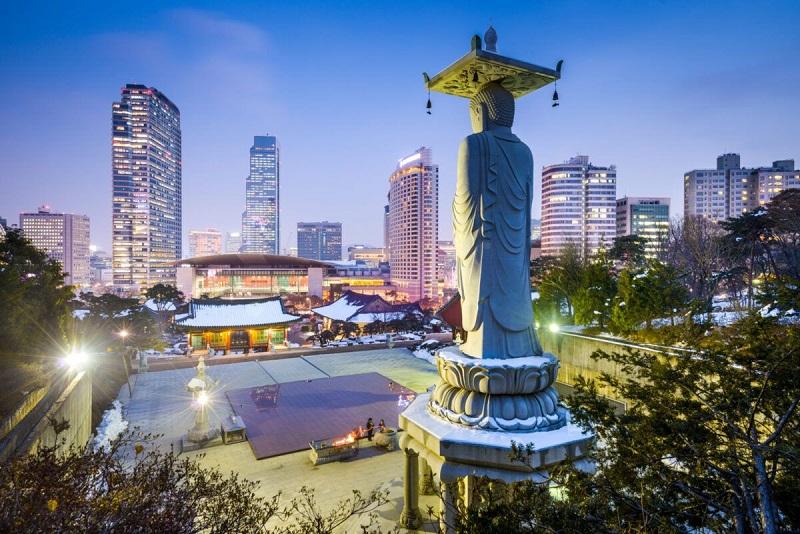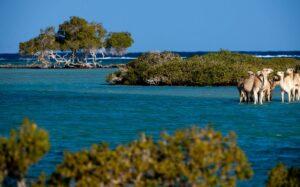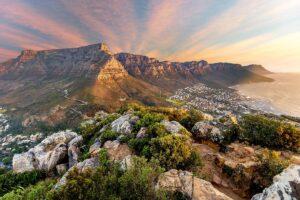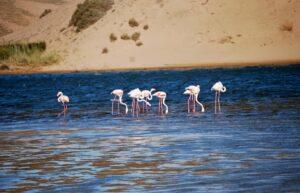Welcome to South Korea, where tradition resides alongside modernity in captivating harmony. This dynamic East Asian nation offers travelers a blend of experiences, from the pulsating energy of Seoul’s neon-lit streets to the serene calmness of its ancient temples and breathtaking natural landscapes. Delve into the vibrant culture of South Korea, where K-pop idols share the spotlight with centuries-old palaces.
Indulge your taste buds with fiery kimchi, savory barbecue, and an endless array of street food delights. Explore the active cities, where sleek skyscrapers stand shoulder to shoulder with historic landmarks, or venture into the countryside to discover hidden gems like Jeju Island’s volcanic landscapes and pristine beaches.
With so many activities and places to see, planning an itinerary for South Korea might seem daunting. Here we have put together a guide to a perfect seven-day itinerary for you in South Korea;
Day One – Seoul
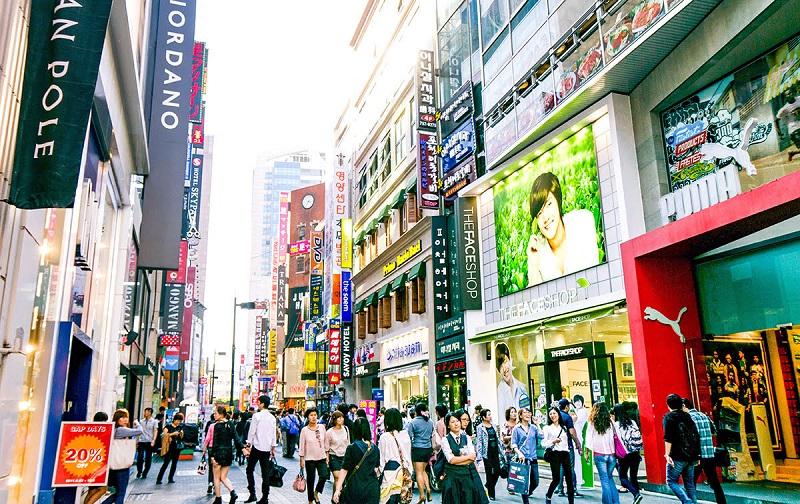
Seoul is the capital of South Korea blending tradition with modernity, making it an irresistible destination for travelers. Seoul has a wide array of ancient palaces, temples, and fortresses against its sleek skyscrapers and busy streets.
At the heart of the city lies Gyeongbokgung Palace, a grand symbol of Korea’s past. You can witness the Changing of the Guard ceremony and explore the meticulously restored halls and gardens.
Nearby is Bukchon Hanok Village offering a glimpse into traditional Korean architecture with its maze of narrow alleys lined with hanok houses. Seoul’s contemporary side shines through in districts like Gangnam and Myeongdong, where neon lights illuminate the streets packed with trendy boutiques, cafes, and nightlife spots.
Seoul’s diverse culinary scene ranges from sizzling barbecue joints to street food markets serving up savory delights like kimchi pancakes and spicy rice cakes. And no visit to Seoul is complete without experiencing the lively atmosphere of Namdaemun and Dongdaemun Markets, where you can haggle for everything from clothing to electronics. For panoramic views of the city, a trip to Seoul Tower is a must.
Day Two – Busan
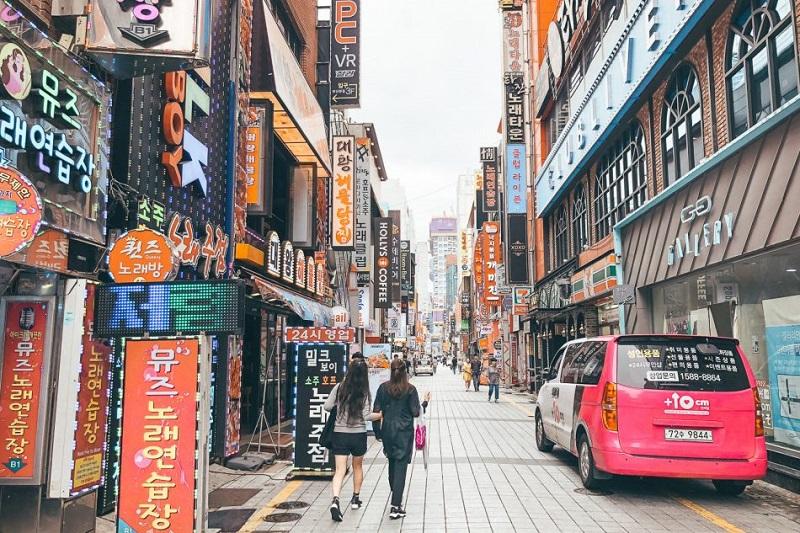
Busan is South Korea’s coastal city filled with natural beauty, rich culture, and modern attractions. Its stunning beaches like Haeundae and Gwangalli are surrounded by mountains providing scenic settings for relaxation and outdoor activities. You can explore historic sites such as Jagalchi Fish Market and temples like Beomeosa, experiencing traditional Korean culture.
Modern marvels like Shinsegae Centum City and the Busan Cinema Center highlight the city’s contemporary side. Culinary delights can be found in its lively food markets and trendy neighborhoods, offering fresh seafood dishes and street food delights.
The city is also home to several temples, including Beomeosa and Haedong Yonggungsa, which showcase beautiful architecture and provide peaceful sanctuaries for reflection and meditation.
You can indulge in shopping at the sprawling Shinsegae Centum City. It is also the world’s largest department store according to the Guinness World Records, or explore the trendy cafes and boutiques of the hipster neighborhood of Seomyeon.
Day Three – Incheon
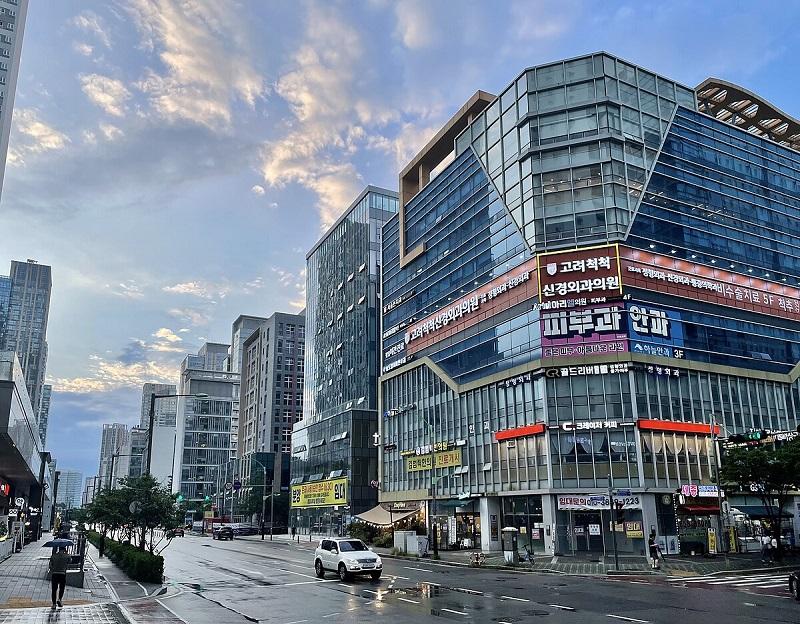
Incheon is South Korea’s third-largest city offering a mix of history, culture, and modernity. Its strategic location near Seoul and its international airport makes it a convenient starting point for exploring the country. Incheon’s most iconic landmark is the Incheon Bridge. You can explore its historic sites, including the Incheon Chinatown, the first and largest Chinatown in Korea.
Visit the Freedom Park which commemorates the famous Incheon Landing during the Korean War. Food enthusiasts will delight in the wide culinary scene, from traditional Korean dishes to international cuisines served in markets and trendy restaurants. Incheon’s nightlife, with its array of bars, clubs, and entertainment venues, offers something for every taste.
Day Four – Bukhansan National Park
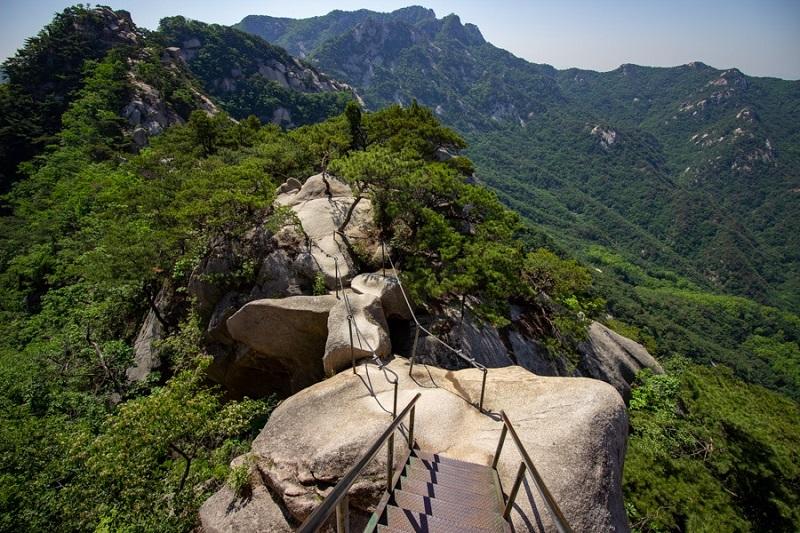
Bukhansan National Park is located just north of Seoul. Spanning over 80 square kilometres, the park is renowned for its stunning granite peaks, forests, and valleys. Hiking enthusiasts flock here to conquer its numerous trails, offering varying levels of difficulty and breathtaking panoramic views of Seoul and the surrounding areas.
The park is home to historic temples and fortresses, such as Bukhansanseong Fortress, providing a glimpse into Korea’s cultural heritage amidst the serene natural setting.
You can explore ancient Buddhist temples like Baegundae and Cheonchuksa located among the mountains. With its diverse flora and fauna, including rare species like the Korean goral and Eurasian otter, Bukhansan offers a rich biodiversity of wild life to explore.
Day Five – Lotte World
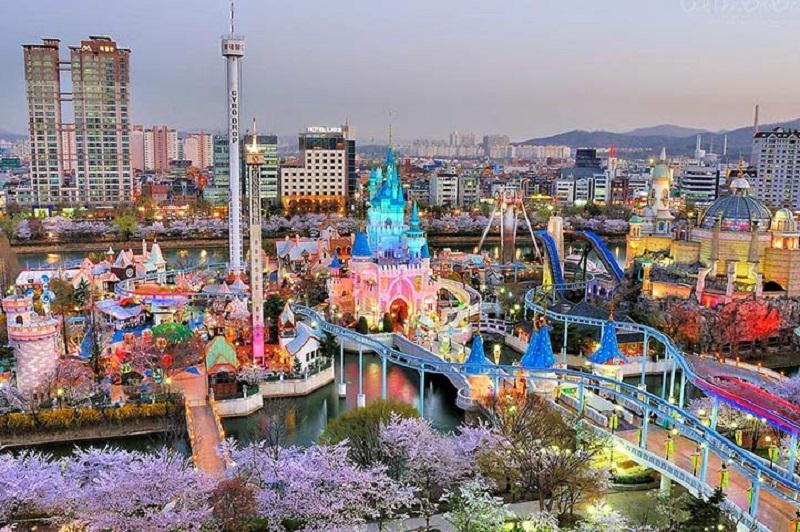
Lotte world is a must-see destination if you are exploring South Korea with family. You can experience a wide range of attractions, including thrilling rides like the Gyro Drop and Atlantis Adventure, as well as more family-friendly options such as the Lotte World Monorail and the Children’s Fairy Tale Land. The park’s indoor section, Adventure, is particularly popular during the winter months when the weather is cold.
Beyond the rides, Lotte World features cultural experiences like the Folk Museum, showcasing Korea’s rich heritage. The Lotte World Aquarium is home to thousands of marine creatures. The park also has an outdoor section called Magic Island, offering additional rides, a stunning lake, and nightly parades with fireworks.
For shopping and dining, Lotte World offers a variety of options, including a shopping mall with a wide range of stores and restaurants serving both Korean and international cuisine.
Day Six – Gyeongju
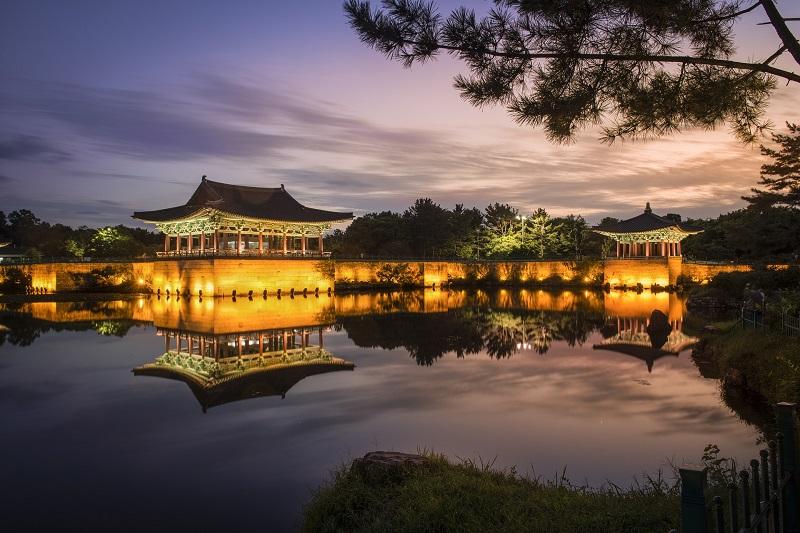
Gyeongju often referred to as the “museum without walls,” is a captivating destination in South Korea that offers a journey through centuries of history and culture. As the ancient capital of the Silla Kingdom, Gyeongju is steeped in tradition. It is dotted with archaeological sites, temples, and relics that showcase its rich heritage.
You can explore UNESCO World Heritage Sites such as Bulguksa Temple, considered one of the finest examples of Buddhist architecture in Korea, and the Seokguram Grotto, home to a remarkable stone-carved Buddha statue. The wide Gyeongju Historic Areas, including the ancient burial mounds of Tumuli Park and the imposing ruins of Banwolseong Fortress, offer insights into the city’s royal past.
In addition to its historical landmarks, Gyeongju’s scenic spots like Bomun Lake and Namsan Mountain provide opportunities for outdoor recreation and breathtaking views.
Day Seven – Bukchon Hanok Village
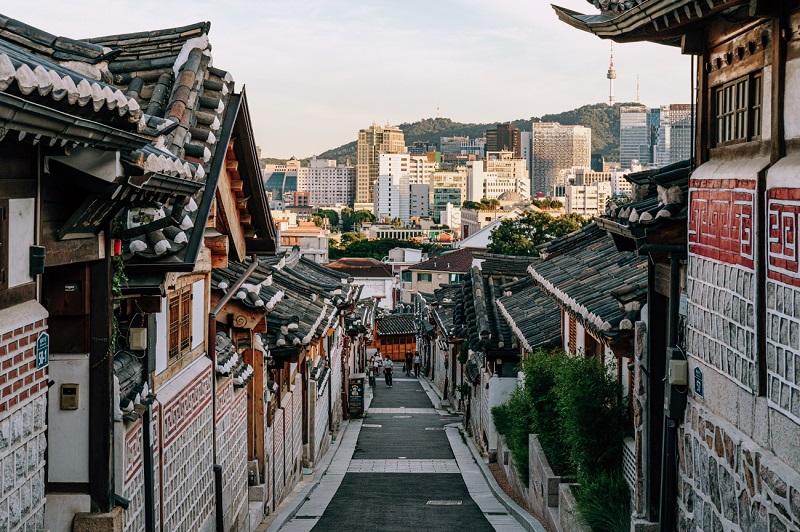
Bukchon Hanok Village located in the heart of Seoul, South Korea, is a charming neighborhood that preserves the traditional Korean way of life. With its narrow alleyways, picturesque hanok (traditional Korean houses), and stunning views of the city offering a glimpse into Seoul’s rich cultural heritage.
You can wander through the village’s maze-like streets, exploring historic homes, art galleries, and cultural centers that showcase traditional crafts and activities. Whether admiring the architecture, participating in a tea ceremony, or simply enjoying the peaceful ambiance, Hanok village offers an authentic experience of South Korean Culture.
Farewell South Korea
Visit South Korea in spring for cherry blossoms, mild weather, and festivals. Summer offers beach fun, while autumn showcases vibrant vegetation and cultural events. Winter is perfect for skiing and unique winter festivals. So, there you have it, a and wonderful 7-day itinerary for South Korea that’s sure to leave you craving more. From ancient temples to futuristic cities, this vibrant country has something for everyone.
